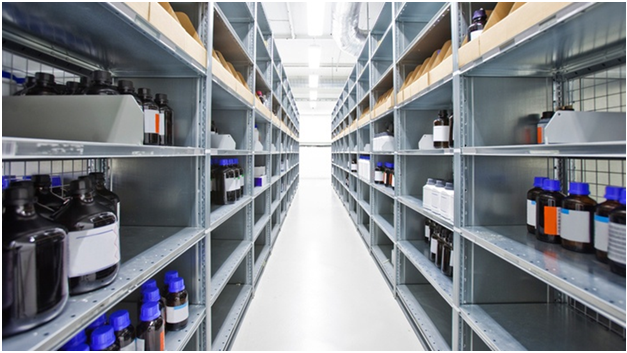It is common for most people to ask their pharmacists how they can store their drugs properly. We already know that we should keep our drugs from the reach of children. But we also need to know the proper temperature and moisture levels for our drug storage area.
One very vital aspect of medication and medical practice is integrity. For this reason, drugs are passed through various processes and screening phases of medical trials. To ensure the medical integrity of these drugs, various tests for moisture, temperature as well as expiration dates are carried out.
Once these tests are done, the drugs are certified as good quality and in perfect condition for the period they were meant to serve. A temperature controlled medication storage ensures that the product quality remains the same.
Medical Storage Recommended Temperatures
For most medications, the proper storage condition is room temperature, which is 68 °F. They also tend to maintain their integrity in a dark, dry, and cool area. Exposing your medication to moist areas such as your bathroom or kitchen could result in rapid product degradation. This could cause some side effects in the long run.
Most manufacturers recommend that drugs or medical products are discarded immediately they fall out of the recommended storage condition for more than five hours. The quality and integrity of the medication can no longer be guaranteed at this point. In addition, monitoring the smell, taste, and look of your drugs before usage is very important.
The chemical contents of these medications could be easily altered by a slight change in the required condition. This could result in the decomposition of these products by reducing their efficiency as well as lead to new effects which might not be favorable to the user.
While some medical products tend to be more stable compared to others, most are stable at normal room temperature. Also, several drugs could be stored in extremely low temperatures like 53°F. Some of these drugs include amoxicillin in its liquid form, which could be used for treating multiple sclerosis. Others retain their integrity and quality when frozen.
However, it is important to note that no medication should be stored in areas with temperatures greater than 86°F. This is because most medication formulae cannot withstand hot conditions. As a result, when transporting medical products in tropical climates, proper and intense care is required.
Drugs and Their Recommended Storage Temperatures
The following are drugs and their recommended storage temperatures:
Norvasc:
This is used in treating blood pressure issues and is stored at 68 degrees F.
Lipitor:
This is used in treating high cholesterol and is stored at68 degrees F.
Toprol:
This is used in treating heart failure as well as hypertension and is stored at68 degrees F or between 59 – 86 °F in cases of excursions.
Veletri:
This is used in treating pulmonary hypertension and is stored between 36 – 46°F.
Synthroid:
This is used in treating hypothyroidism and is stored at68 degrees F or between 59 – 86 °F in cases of excursions. You can click here to read more aboutSynthroid.
Factors That Affect Drug Temperature
Several activities or factors can result in the exposure of our medications to extreme temperatures which might not be proper for them. Some of these factors include:
The Temperature Inside Your Car
Keeping medications in a closed car for a long period could result in their exposure to high-temperature levels.
Hot Weather
In hot spells and the absence of an air conditioner running 24 hours, our homes could be warm enough to cause our medications to overheat.
Travel
Placing our drugs in our luggage while traveling could increase temperatures that may not be medically favorable for them.
Delivery
Sometimes, our medications are delivered through mail order from the pharmacy.There’s a chance that the pharmacy delivered them in a truck that is not temperature regulated.Or they may have been sitting for long in the mailbox. You can visit https://www.goodrx.com/blog/5-things-to-consider-before-using-a-mail-order-pharmacy/ to know more about gettingmedicationsvia mail.
Protecting Your Medications
You can take the following steps to preserve drug integrity and prevent degradation that could be caused by heat:
- Avoid storing drugs inside your trunk or closed car for a long period. Ensure to carry them as you leave the car.
- Always check the medical storage requirements and recommendations.
- On airplanes, ensure to carry your medications along with you and not in your luggage. Preferably, carry them in the original containers bearing the pharmacy labels. This would also assist in your check-ins with customs.
- Find out if the pharmacies you are purchasing from have provisions for emergency generators that could maintain the temperature in cases of power failure for refrigerated medical products.
Conclusion
Drug product integrity and quality is a vital aspect of medical practice. To this effect, drugs must be properly tested for moisture, temperature, and expiration before getting to the final consumers. Ensuring that our drugs are safely stored would guarantee their efficiency. Therefore, avoid exposing them to temperatures above 86°F as they can affectthe chemical formulations of the drugs.


Leave a Reply